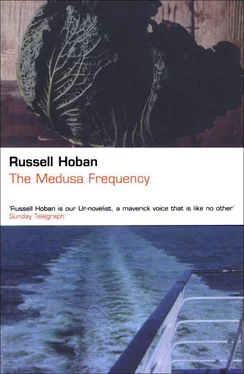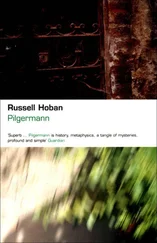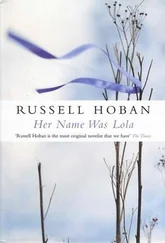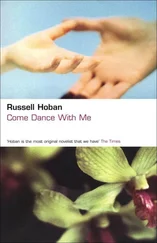I ran down the stairs and out into the road. She was still there, manifesting herself as ordinary reality and not disappearing. She paused at the sound of my footsteps and turned. ‘Herman,’ she said. ‘What are you doing here?’
‘I came to see the Vermeer girl but she’s gone to America. What about you?’
‘I’m here with my husband, he’s installing a computer system.’
Time ceased to be an automatic progression: the present moment exploded into millions of sharp-edged fragments and nothing followed. The bells dinged softly, the yellow trains moved in and out, the purple-blue darkened but the next moment did not come. It seemed so little to ask, that the next moment should come. Perhaps if I moved my mouth. I moved my mouth, it said, ‘You’re married then, you finally found the right one.’
‘Yes, I found the right one.’
I had a piece of folded-up paper in my pocket, I always do: yellow A4. ‘Luise,’ I said, giving her the paper and a pen, ‘please write your name and the date on this for me.’
‘Why?’
‘Because all of a sudden it’ll be some other time and I want to have something from this time.’
She wrote her name and the date, the piece of paper is stuck on the edge of the monitor screen along with the Vermeer-girl postcard. I was right, all of a sudden it was some other time and the engines of the St Nicholas were throbbing as they drew a line across the night from Hook of Holland to Harwich. In my hand were the postcard and the folded yellow paper on which was written Luise Nilsen and the date. She lived in Oslo now, her husband’s name was Lars, he was forty-two, tall and bearded, they did a lot of skiing, they did a lot of sailing, they owned a forty-foot ketch named Eurydike, they had a daughter named Ursula who was almost a year old, they called her Ursel, Luise thought of me sometimes, she’d read Slope of Hell and World of Shadows and recognized herself and incidents from our two years together, that time seemed very far away now. We sat in the bar at the ‘Du Commerce’ and talked as if it was a possible thing to do: there she was, I could have reached out and touched her, and she was gone out of my life for ever. I had no part in her days and nights, she would continue without me as if I were dead.
I went out on deck and walked aft to look at the white wake widening astern in the night. Seeing the actuality of Luise married and gone for ever, was that what the stone had cracked and freed me for? I could feel that something had happened, I could feel the Hermes of it, could feel myself on a night road to somewhere else. One couldn’t ask more than that — to be sometimes on a night road to somewhere else. ‘I have no name but the one you give me,’ I said, ‘no face but the one you see.’
Cleaving the foam like a periscope was a telephone in which crouched the telephonist Lucretia, bellowing above the sound of the engines and the hiss of the sea along the ship’s sides that she had a call for me from Sol Mazzaroth.
Ring, ring, said the telephone when I got home.
‘Hello,’ I said.
‘Herman Orff?’ said Lucretia, flicking her whip against her boot.
‘Yes.’
‘I have a call for you from Sol Mazzaroth.’
‘Thank you.’
A little advance silence came out of the telephone like ground meat out of a meat-grinder. I wrapped it neatly in white paper and tied it with string.
‘Herman?’ said the voice of Sol Mazzaroth.
‘That’s me.’
Sol’s hands came out of the telephone and rubbed themselves together briskly. I offered them the neatly wrapped silence.
‘Herman,’ said Sol, ‘tomorrow’s the editorial meeting for Vol. One, Number One. Where are we with Orpheus?’
I saw my current account rolling its eyes like a steer in the slaughterhouse. If you had balls you wouldn’t be a steer, I said as I lifted the hammer.
Look who’s talking, said the current account. If you had balls I’d have been dead long ago. Go on, kill me, let’s see you do it.
I put down the hammer. Maybe we can work something out, I said. After all, they’re even doing Shakespeare in comics nowadays. And I’m sure it’s what Shakespeare would’ve wanted, he was a popular writer in his time.
Shakespeare was what he was and you’re what you are, said the current account: you’re a miserable no-talent coward.
One day you’re going to push me too far, I said.
That’ll be the day, it said.
‘Herman?’ said Sol. ‘Are you there?’
‘Sol, I haven’t been able to get started on Orpheus yet.’
‘Herman, what are you telling me? Just the other day you said, — hang on, I’ve got it right here — you said, “GNGGX.” You said, “NNZVNGGGG,” you said, “NNVLL.” And you said you’d have something for me to look at on FNURRN, which is today in case you hadn’t noticed.’
‘Sol, there’s a lot more to this Orpheus thing than you might think.’
‘Please, spare me the song and dance. When can you have something for me?’
‘Can I ring you up tonight?’
‘I’ll ring you. Tell me when.’
‘Late. Round about midnight.’
‘Right, talk to you then.’
What I like about you, said the current account, is that you’re reliable. You can always be relied on to have no balls.
I’m not sure what I’m going to do, I said. I’ve got to think about it.
Right, said the current account. We’ll talk again soon, OK? We’ll have lunch.
I rang up Istvan Fallok. ‘I’ve just come back from The Hague,’ I said. ‘I ran into Luise there.’
‘Luise! What’s she doing?’
‘She’s married, big bearded husband named Lars. They go skiing and they have a forty-foot ketch, it’s called Eurydike. They have a year-old daughter named Ursula. They live in Oslo and Lars installs computer systems. How’s that grab you.’
‘You needed me to know about it, right?’
‘Right.’
‘OK, I know about it. Bye-bye.’
‘Wait. Did you know about Luise and Kraken?’
‘Yes, I knew about that. Bye-bye again.’
I sat there with the telephone in my hand thinking of Melanie. No, I thought, wait a little.
I put on the tape of the Blue Note Thelonious Monk Volume One that begins with ‘Round about Midnight’. Beyond my window the grey wind rattled the brown leaves and two boys ran past kicking a football that thumped and skittered among the parked cars. Sheltered in Monk’s midnight dome, his caves of nice, I typed on to the screen:
THE STORY OF ORPHEUS
Something hit the front door with a sodden smack. I opened it and the head of Orpheus leaped up and fastened its teeth in my arm. Filthy and battered, its features flattened as if it had been rolling through the streets for years, it hummed and buzzed its blind rage.
‘Nice to see you again,’ I said. ‘To what do I owe the pleasure of your company?’
The head continued biting. Blood was running down my arm.
‘Something’s bothering you, isn’t it,’ I said. ‘Is it anything I’ve done?’
The head jerked itself towards the monitor and THE STORY OF ORPHEUS.
‘Is that it?’ I said.
The head nodded.
‘I’ve told you that Sol Mazzaroth wanted something in the Orpheus line,’ I said. ‘I was about to see what I could do with it.’
The head shifted its jaws and got a better bite.
‘You’d rather I didn’t. That’s a bit dog-in-the-manger, isn’t it? You won’t finish your version and you don’t want me to make up my own.’
The head opened its mouth to speak and I caught it as it fell. ‘You keep making me appear,’ it said, ‘and I’m so tired.’
‘You’re tired? What about me? Life wasn’t hard enough so I had to go to The Hague and find Luise with a big bearded husband and a daughter and a forty-foot ketch.’
Читать дальше












